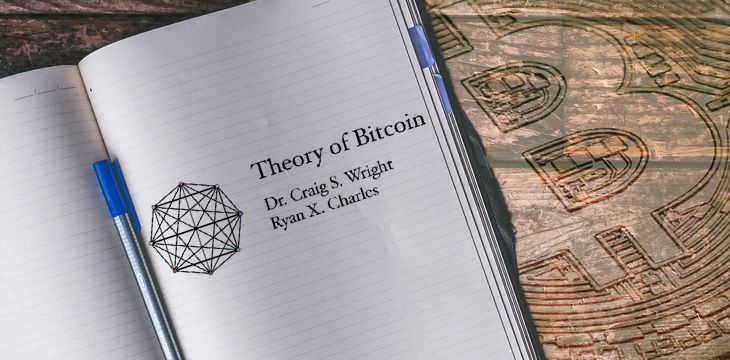|
Getting your Trinity Audio player ready...
|
The essential education course for anyone wanting to build something meaningful on Bitcoin is back with another episode. The fourth in the latest series of “Theory of Bitcoin” is titled “Disciplines of Bitcoin”—and hosts Ryan X. Charles and Dr. Craig S. Wright cover several you might not have considered before.
Charles gets things started by mentioning Statistics: “Bitcoin is a way for statistically independent miners to arrive at a consensus about the order of transactions.” Dr. Wright agrees with this. By “statistically independent” he means they can’t be working in cooperation with each other, and Wright points out that such action would legally be regarded as a partnership, with the responsibilities (and liabilities) that come with it.
There’s a lot of discussion about economic incentives in this episode, once again countering the claim that Bitcoin is “secured by cryptography.”
“It’s not cryptographic—it’s economic, and game-theoretic. It uses some algorithms but it’s still an economic system.” Much of his past research, he says, was based on using economic models for security. Economic incentives have historically proven far more effective at maintaining security than technological solutions, which always turn into an arms race between attackers and defenders.
“Bitcoin is a way to make the internet more secure, by adding payments to communications channels, so that every attack can be made more costly than the gain,” Charles suggests.
Dr. Wright gives a bit of Internet history here (as he often likes to do), saying the Internet’s openness has actually been a barrier to building robust systems on it. He points out there is a difference between the old DARPAnet and today’s internet—DARPAnet was open and its information was free, whereas the public Internet was always intended as a platform for commercial services.
So Bitcoin does add that robustness the Internet lacks—it can still be used to store and transmit information, but with a ledger. And that ledger itself, or the ability to record on it, is where the true value of Bitcoin lies. “Information is the commodity,” Wright says, and that information is more trustworthy when it’s on the Bitcoin blockchain.
He frequently corrects Charles’ statements about payments by saying Bitcoin is far more than just payments. As for the Bitcoin BSV token itself, that was never meant to be where the value lay. Focusing, and speculating on the Bitcoin (token) price has been a sideshow, but the value that will matter most to future generations is how Bitcoin handles all information.
This ties in with the theme of the second series of “Theory of Bitcoin,” subtitled “Bit”. It’s about the application of Information Theory to Bitcoin, and the nature of Information itself. To those who’ve never studied the topic, it’s a fascinating introduction presented in an accessible way.
The many disciplines you need to understand
Charles also touches on other disciplines, such as Thermodynamics (“Bitcoin is a way to convert knowledge about energy into knowledge about the history of transactions”), Network Theory (“Bitcoin is a near-complete small world graph encompassed in a mesh network”), and Law (“Bitcoin is a fixed unilateral contract to validate digital cash transactions in exchange for payment in digital cash tokens”). Dr. Wright agrees with the statements but expands them where he feels the description is too narrow—usually where it refers to cash. Bitcoin works fine as digital cash, but it has evolved far beyond that use case.
There’s also sidetracks into other economics and even finance. While Dr. Wright talks often about the profit motive and its incentives, he once again rails against the pursuit of short-term profits. Cutting R&D functions has produced short-term gains for companies and credit for their CEOs, as well as “adding shareholder value”—but such moves have cost companies both future profits, and their customers’ trust. The effects of cutting R&D are felt around 15-20 years into the future, long after the CEO who implemented the policies is gone, and too late to correct the problem.
“The important word of the day is ‘stewardship,'” he says. A CEO is “not a king, but a steward.” This important point is often forgotten.
“Theory of Bitcoin” is Ryan X. Charles’ attempt to prove or disprove the thesis topic “Bitcoin isn’t just a solution to digital cash, it’s the only solution.” And whether that thesis is proven or disproven, to produce a full course of educational material. Only by watching this series does the full picture of Bitcoin begin to emerge, and anyone watching it will come away with a far deeper understanding of why Bitcoin exists.

 02-23-2026
02-23-2026 




